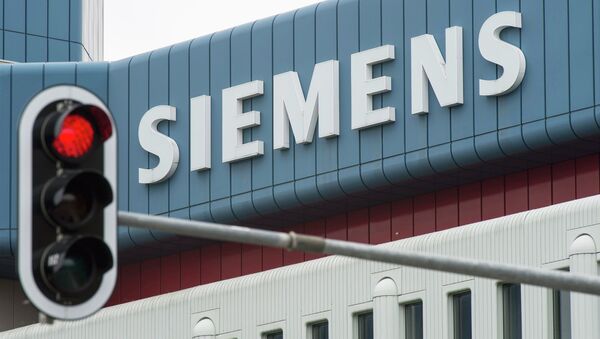"The new wave of sanctions brings nothing new compared with the restrictive measures adopted in 2014, 2015 and 2016. The European Union is repeating itself. As practice has shown, the previous sanctions did not have any significant impact on either the country's economy, nor on the activities of certain corporations," the analyst said.
According to him, the new restrictive measures are "nothing else but PR."
"We see that the sanctions have already started to irritate everyone: businesses are tired of the sanctions, and the authorities are tired of the fact that there is much noise and no result. Sanctions have become obsolete," Serebrennikov argued.
According to Nikolai Kaveshnikov, the head of the MGIMO Department for Integration, the expansion of the EU sanctions against Russia amid the Siemens scandal was expected. However, the analyst believes, such a decision was made in Brussels not to promote the sanctions spiral, but because the EU had to take countermeasures.
"Naturally, in the context of the sanctions logic adopted in the EU, there should have been some kind of solution, and this step was quite expected. The question was who should be affected by these additional sanctions, and the fact that they are limited to those directly involved in this situation shows that the European Union has taken its decision not to further escalate the sanctions issues, but simply because it had to react," Kaveshnikov said.
On Friday, the EU imposed additional sanctions on Moscow over a scandal surrounding the transfer of turbines supplied by German company Siemens to the Russian peninsula of Crimea in violation of previous EU sanctions. The EU added three Russian nationals, including two Russian Energy Ministry officials and three companies to its sanctions list over the issue.


